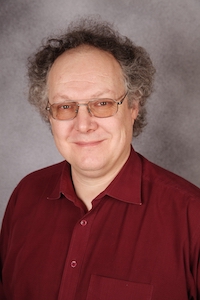Physics and Chemistry
Chemistry
Machine Learning has a long tradition in chemistry. Quantitative structure-activity relationship (QSAR) connects molecular structures to physico-chemical properties and biological, toxicological, or pharmacological activities. The inverse problem, known as matter engineering, is receiving rapidly increasing attention. At ScaDS.AI Dresden/Leipzig, we already use novel Artificial Intelligence (AI) approaches to accelerate ligand-based screening in computer-aided drug discovery (CADD) and with BCL software library, we make advances in Machine Learning and AI available to screen and prioritize millions of drug-like molecules in silico. Graph-grammar-based tools facilitate the analysis of chemical reaction networks based on graph transformations and hyperflows, linking Machine Learning and AI methods to predict molecular properties and reactions and to extensive knowledge bases.
Physics
Machine Learning and AI approaches have recently gained momentum also in physics, employing data-driven methods to close the loop between theory and experiment, stimulating both the theoretical comprehension of fundamental physical relationships and the experimental validation of the very complex dynamics. We use Machine Learning and AI on surrogate modeling and inverse problem for Matter under Extreme Conditions, Astrophysics in the Laboratory, the understanding of Warm Dense Matter, Plasma Physics, Accelerator Physics, and strong-field quantum electrodynamics. In Nanophotonics, we target the control of dynamical processes and emergent collective behavior by optical microscopy in synthetic active materials. Single-shot CNNs and Q-learning techniques on discrete state spaces were developed e.g. for real-time object classification and tracking in microscopy images.
Research Focus
Our research in Physics and Chemistry concentrates on two major groups of topics:
- learning effective models of complex dynamical phenomena and complex relationships among data, and
- non-convex inverse problems, i.e., design problems.
Chemistry
Effective models of molecular properties will be lifted to a new level of quality by adapting deep learning algorithms to enable directly training on 3D representation of the drug-like molecules in ligand-based Combined Annotation Dependent Depletion (CADD), enabling ultra-large library-screening cascades for ‘make-on-demand’ libraries with more than 200,000,000 possible molecules. New rule learning techniques will combine molecular properties with known chemical reactions enabling the large-scale extraction of mechanistic information for metabolic engineering and pharmacodynamics. The prospect is to revolutionize large-scale molecular design tasks, ranging from synthesis planning and drug screening, and to rational interventions in complex microbial communities. We plan to extend current NN methods to enable real-time 3D object tracking in complex biological contexts. Deep Reinforcement Learning techniques will be generalized to continuous state and discrete action space.
Physics
Complementarily, we will explore active particles for reservoir computing in a liquid environment. Large-scale Physics-informed neural networks and invertible neural networks will be used for surrogate modeling of Plasma-Wakefield particle accelerators and reconstruction of experimental data e.g. in radiation diagnostics, X-ray diffraction, and Ptychography. Fast and reliable reconstruction of experimental diagnostics by invertible neural networks will revolutionize experimental campaigns at large-scale research facilities. Simulation-based inference, denoising, background removal, transfer learning, surrogate modeling, pattern recognition, uncertainty quantification, and studies of trustworthiness will be one main focus.
Aims
We will study infrastructure for learning on streaming data from large-scale plasma simulations for building surrogate models and solve inverse problems in plasma physics and study anomaly detection for n-dimensional data, uncertainty quantification of Machine Learning predictions and Machine Learning-based denoising. Moreover, research will aim at a prototype Infrastructure for federated AI training on pseudonymized and anonymized patient data. Main activities in the area of Chemistry will comprise the integration of deep learning artificial intelligence with microfluidic chip enhanced drug discovery, the development of a combination of combinatorial and AI techniques for reaction rule learning in large chemical reaction systems, machine learning guided control of a thermoplasmonic separation in complex mixtures and chemical reaction control in microfluidic environment. Moreover, decision tree approaches for chemical networks in bacterial communities and new approaches of physical learning in active matter systems will be explored.



